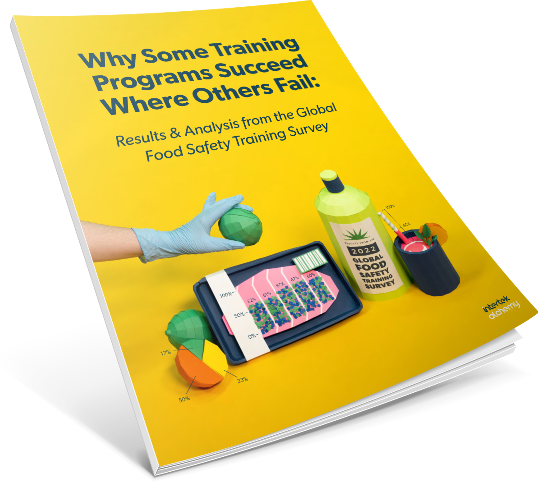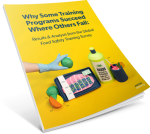Intertek Alchemy, which offers training for manufacturing and food processing industries, has released the findings of its seventh annual Global Food Safety Training Survey, developed to assess food safety training practices
More than 2,000 industry professionals representing more than 3,000 food production facilities worldwide responded to the survey. Their responses highlighted some of the significant challenges and contradictions of current food safety training practices, and provided insight into strategies to help overcome these challenges.
For example, 88% of respondents believe that their companies provide adequate levels of food safety training to drive consistent and appropriate food safety behaviors. Yet only 40% of their employees follow food safety programs on the manufacturing floor.
Additional key findings from the survey include:
- 81% of respondents agreed that their companies understand what it takes to build and sustain a strong food safety culture, and 40% of companies use a food safety culture audit/assessment to measure sustained food safety behaviors. But, only 22% of respondents strongly agree that their employees have the authority to take action when food safety is compromised.
- 80% of respondents believe they would be more productive if their employees consistently adhered to their training programs. However, only 19% of companies are increasing their budget for food safety training and only 18% plan to add new training technologies next year.
When looking at practices that improve food safety outcomes, responses revealed that:
- Tailoring training to specific job roles increases the likelihood from 22% to 82% that a frontline employee will halt production when necessary to prevent a food safety incident
- Highly motivated employees are over two times more likely to consistently adhere to food safety protocols on the floor.
- 78% of companies with a mature upskilling programs reported having highly motivated employees, compared to 43% for companies without an upskilling program.
When asked to share, “What are you organization’s biggest food safety training challenges?” nearly 50% cited scheduling time for training, followed by staff turnover and bad practices or misinformation passed from one employee to another.
One of the most significant changes in this year’s survey was how food safety training is delivered. The use of e-learning tools nearly doubled in the past two years (37% in 2020 to 63% in 2022).
“This year’s Global Food Safety Training Report presents some eye-catching findings, providing a comprehensive look into what food manufacturers can do to improve food safety training outcomes,” said Intertek Alchemy President Darrin Harkness. “We’re proud to sponsor the research that provides clear, data-driven answers on how they can make their food safety programs even stronger. Together we can work to ensure a safe and sustainable global food supply with a shared goal of reducing foodborne illnesses and eliminating costly recalls.”
The Global Food Safety Training Survey is sponsored by Intertek Alchemy and Campden BRI, in partnership with BRCGS, BSI, Cultivate, SGS, Safe Quality Food Institute and TSI.
A complimentary copy of the research paper, “Why Some Training Programs Succeed Where Others Fail,” is available for download here.





